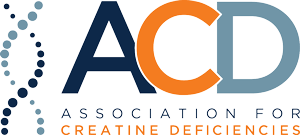Broad Impact Research Opportunities
The ACD is committed to open data-sharing and collaborative research efforts. These initiatives support and are critical to multiple researchers understanding Cerebral Creatine Deficiency Syndromes (CCDS).
-
Coriell Biobanking to support research
Coriell Biobanking
Access to CCDS biosamples (i.e. blood, skin cells) is one of the key needs of the research community. The Association for Creatine Deficiencies is excited to partner with Coriell, a world leader in biobanking (the collection of biosamples for research purposes) to collect and store cells from patients with CCDS and their families in support of research. Watch an informative webinar about what this means and how to participate by visiting the blog post, “Coriell Biobanking Opportunity.”
-
CreatineInfo Patient Registry and Patient-Reported Natural History Study
CreatineInfo Patient Registry and Patient-Reported Natural History Study
The CreatineInfo Registry is a Patient-reported Registry and Natural History Study created by ACD and hosted by NORD for furthering research and empowering the Cerebral Creatine Deficiency Syndromes (CCDS) community. Join the registry at creatineinfo.iamrare.org – For more information visit creatineinfo.org/creatineinfo-registry or contact registry@creatineinfo.org
-
Newborn Screening Research: You Can Help! (CTD, GAMT & AGAT)
ACD supports the validation of testing for GAMT Deficiency and the research of plausibility for CTD and AGAT newborn screening by assisting interested labs in obtaining a very small portion of patients’ dried blood spots (DBS) that were collected shortly after birth. Many laboratories retain these DBS for years. If you’d like to help in this effort, please complete this form so that we can check if your child’s spot is available. If it is available, you will be contacted by ACD. You will decide if you wish to consent in the particular research being done. Filling out this form does not give us permission to act on your behalf. It does not allow us to use your child’s DBS without your consent. We will not share your information with anyone for any reason. The intent of this form is to identify the availability of DBS and allow you to decide what research you will support.
Third-Party Research Opportunities
-
fNIRS Endpoint Investigation
fNIRS Endpoint Investigation: A Potential Non-Invasive BioMarker
ACD is making progress to prepare our community for potential clinical trials. Drs. Michela Fagiolini, Laura Baroncelli, and Irina Anselm will launch a study site in spring of 2024 at Boston Children’s Hospital and Harvard Medical School. ACD is supporting this study by providing equipment, thanks to a generous grant from the Ludwick Family Foundation, distribution of information to the CCDS community, and other caregiver supports. The study will be investigating ‘fNIRS’ technology and measuring correlations between fNIRS data and cognitive function in CCDS patients. The objective is to determine if fNIRS can function as a non-invasive biomarker for CCDS clinical trials.
Attend a webinar on April 12, 2024 to learn more and ask questions: fNIRS Interest Survey
Learn more: Watch the International CCDS Day presentation on fNIRS at Boston Children’s Hospital
Clinical Drug Trials
Ravicti Clinical Trial Announcement
The open label study of glycerol phenylbutyrate (“Ravicti”) has been expanded to include children with Creatine Transporter Deficiency (SLC6A8 mutations) that experience seizures. ACD will host an informational webinar on May 10, 2024 at 2:00 pm ET in which the trial investigator will share a presentation, questions from the audience will be answered, and details on how to express an interest in participating will be shared. Learn more and sign up at creatineinfo.org/ravicti.
*ACD does not endorse or recommend participation in any specific clinical trials. Third-Party surveys do not contribute to the data in the ACD Patient Registry.
Drug Development and Clinical Trial Information
Visit our Drug Development and Clinical Trial information page to learn more about this process, understand key terms, and find answers to frequently asked questions.





